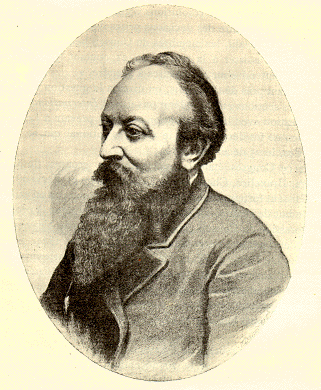
Cesar De Paepe
Encyclopedia

Industrial Workers of the World
The Industrial Workers of the World is an international union. At its peak in 1923, the organization claimed some 100,000 members in good standing, and could marshal the support of perhaps 300,000 workers. Its membership declined dramatically after a 1924 split brought on by internal conflict...
and the syndicalist movement in general. Anticipating modern political philosophy
Political philosophy
Political philosophy is the study of such topics as liberty, justice, property, rights, law, and the enforcement of a legal code by authority: what they are, why they are needed, what, if anything, makes a government legitimate, what rights and freedoms it should protect and why, what form it...
, democracy
Democracy
Democracy is generally defined as a form of government in which all adult citizens have an equal say in the decisions that affect their lives. Ideally, this includes equal participation in the proposal, development and passage of legislation into law...
according to de Paepe would inevitably spread to the economic segments of society and economic organizations: workplace democracy
Workplace democracy
Workplace democracy is the application of democracy in all its forms to the workplace....
was inevitable. He graduated in medicine at the Universite Libre de Bruxelles
Université Libre de Bruxelles
The Université libre de Bruxelles is a French-speaking university in Brussels, Belgium. It has 21,000 students, 29% of whom come from abroad, and an equally cosmopolitan staff.-Name:...
.
De Paepe was a leading member of the First International and was the principal leader of the Collectivist victory over the supporters of Proudhonian mutualism
Mutualism (economic theory)
Mutualism is an anarchist school of thought that originates in the writings of Pierre-Joseph Proudhon, who envisioned a society where each person might possess a means of production, either individually or collectively, with trade representing equivalent amounts of labor in the free market...
, like Henri Tolain
Henri Tolain
Henri Tolain , was a leading member of the French trade union and socialist movement and a founding member of the First International and follower of Proudhon.- Life :...
, at the 1868 Brussels conference. Initially siding with the anti-Marxist side of the 1872 split, his subsequent debates with the anarchists of the Jura Federation
Jura federation
The Jura Federation was the federalist and anarchist section of the International Workingmen's Association , based largely among watch-makers in the Jura mountain range in Switzerland. The Jura federation was founded on October 9, 1870 at a meeting in Saint-Imier of local sections of the IWA...
such as Paul Brousse
Paul Brousse
Paul Brousse was a French socialist, leader of the possibilistes group. He was active in the Jura Federation, a section of the International Working Men's Association , from the northwestern part of Switzerland and the Alsace. He helped edit the Bulletin de la Fédération Jurassienne, along with...
and Adhémar Schwitzguébel
Adhemar Schwitzguébel
Adhémar Schwitzguébel was a Swiss Anarchist and theorist of collectivist anarchism. He was a founder of the Jura Federation and member of the First International.- Life :...
over the "Public Service Question" led him to defend the necessity of a workers' state to provide social services like a public health service.
Because he flourished after the Communist Manifesto but before World War I, de Paepe's views are inevitably compared to those of Karl Marx
Karl Marx
Karl Heinrich Marx was a German philosopher, economist, sociologist, historian, journalist, and revolutionary socialist. His ideas played a significant role in the development of social science and the socialist political movement...
. De Paepe was notably neutral on the question of a violent worker revolution by the proletariat
Proletariat
The proletariat is a term used to identify a lower social class, usually the working class; a member of such a class is proletarian...
. He thought it was possible, and maybe desirable in some countries, but that a slow gradual advancement of democratic values and norms in workplaces would have a pacifying effect and eventually make the methods by which the ruling class ruled obsolete: once everyone was a manager, management
Management
Management in all business and organizational activities is the act of getting people together to accomplish desired goals and objectives using available resources efficiently and effectively...
would lose mystique, just as once everyone could vote, political leadership had also.
External links
- Cesar De Paepe (Dutch)

